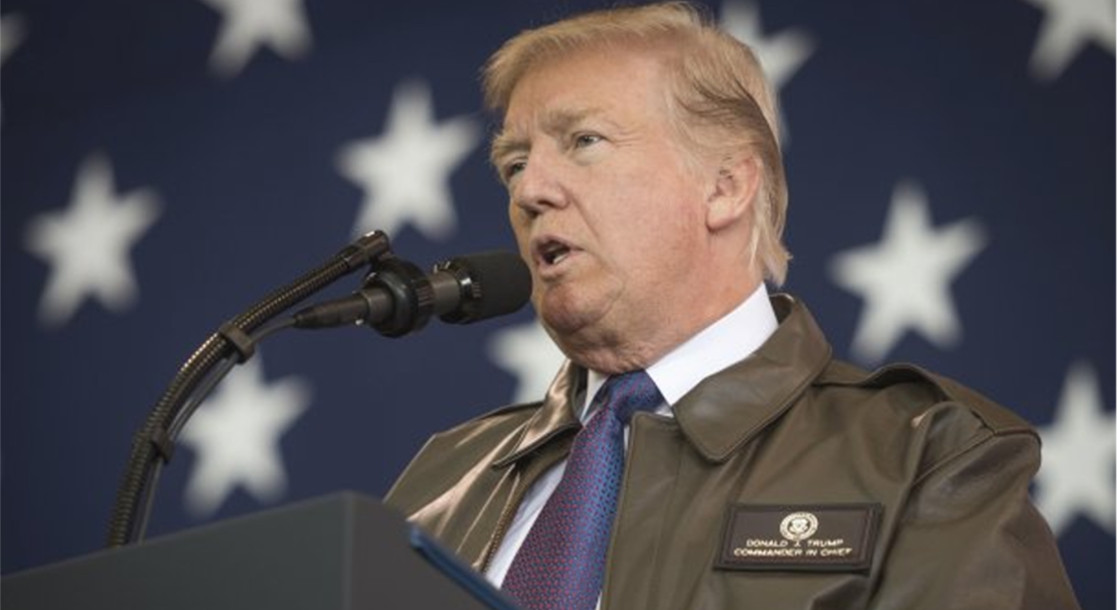Photo via U.S. Air Force
Donald Trump responded to reports of a chemical weapon attack in Syria this past weekend with a series of military threats, levied on Twitter against both embattled Syrian president Bashar al-Assad and one of the country’s primary allies, Russia.
On Saturday, reports began trickling in of a possible chemical weapon deployed by the Assad regime against rebels in the central Syrian enclave of Duomo. As U.S. officials continue to assess the situation on the ground, President Trump took to his favorite social media site, unleashing a string of insults and military threats against Assad and Syrian supporters in Russia.
Russia vows to shoot down any and all missiles fired at Syria. Get ready Russia, because they will be coming, nice and new and “smart!” You shouldn’t be partners with a Gas Killing Animal who kills his people and enjoys it!
— Donald J. Trump (@realDonaldTrump) April 11, 2018
Wednesday’s tweet was the second time since the Syrian chemical attacks were first reported that Trump has called Assad an “animal,” and spoken tenuously about his administration’s very complicated relationship with Russia.
In the midst of a continued investigation into the possibility that Russia meddled in the 2016 U.S. presidential election on Trump’s behalf, Vladimir Putin’s support of the Syrian regime has created a new rift between the controversial heads of state. In another tweet Wednesday morning, Trump claimed that America’s relationship with Russia is “worse than it has ever been.”
Our relationship with Russia is worse now than it has ever been, and that includes the Cold War. There is no reason for this. Russia needs us to help with their economy, something that would be very easy to do, and we need all nations to work together. Stop the arms race?
— Donald J. Trump (@realDonaldTrump) April 11, 2018
Trump has repeatedly criticized Barack Obama for not taking severe military action against the Assad regime, but with a “tweet first, worry later” foreign policy plan, experts are already anxious that Trump’s missile threats could lead to an untenable military engagement, and at worst, even nuclear conflict.
“There might be a narrow, self-satisfying strike, but as long as there is no bigger perspective or broader strategy for the whole conflict, it may just fuel escalation without meeting any objective,” Emile Hokayem, of the International Institute for Strategic Studies, told the Washington Post.
Despite the president's rhetoric, it’s still not exactly clear what Trump’s next move will be, but after reports of a retaliatory strike from U.S. ally Israel on Syria surfaced this week, the prospect of American military involvement began to grow with each presidential tweet.
“Trump has to understand that we’re going to be talking about the possibility of nuclear escalation if we have a collision of the U.S. and Russian militaries,” Igor Korotchenko, a Russian military scholar and member of the Defense Ministry's public-advisory council, told the Washington Post. “Everything can happen very quickly, and the situation can spin out of the control of the politicians.”
Keep your eyes peeled to MERRY JANE’s Need to Know column for continued updates on this evolving situation.











